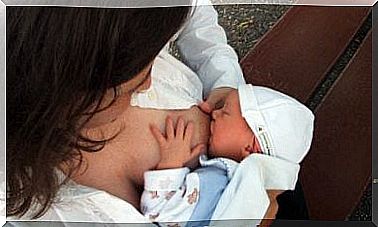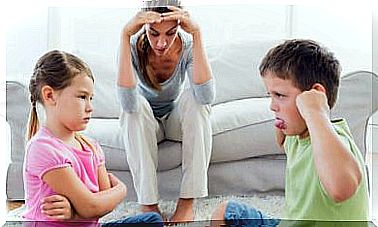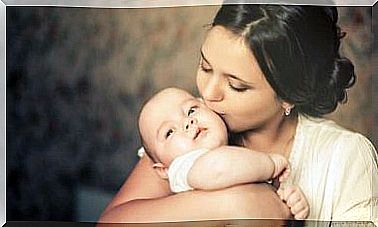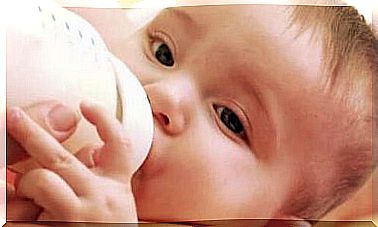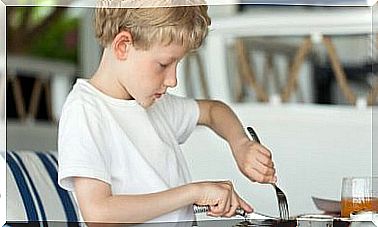No, Postpartum Is Not Always Happy And Joyful For The Mother

No, postpartum is not always rosy for the mother. Because strength is not always left. Because the body hurts. Because the fears are countless, the lack of sleep is enormous, and the child’s needs are endless.
We are sure that if your postpartum period was complex, difficult and painful, many of the people around you advised you to be calm, not to let your guard down and to enjoy this sweet moment that is motherhood.
These types of phrases no doubt hide the small fear of many of our family members that we will end up suffering from classic postpartum depression.
However, what not everyone knows is that there are different levels of the disease. That is, many intermediate gradations that are not formal depression and diagnostic manual, but that represent another state that is not so well known: we speak of the “ Baby Blues ”.
We are sure that this theme can help you a lot. In this “I’m Mom” article, we’ll address this topic.
The postpartum is not pink: it is “baby blues”
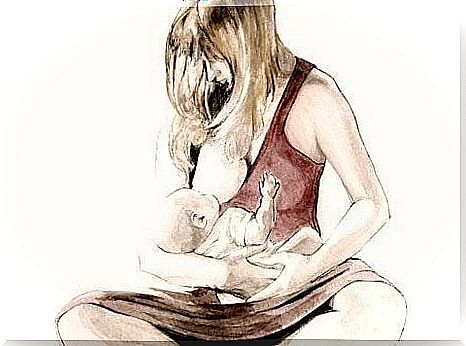
Something that the mother experiences when she gets home after giving birth is the “obligation to feel happy, to be with 100% of her strength and with the feeling that she is living the best phase of her life. ”
And no doubt you are living, or rather “will live”, but within a few months. When your body adapts, when the hormonal calm is balanced, and when all those fears, pains, uncertainties and anxieties are regulated, you will become more secure in your role as a mother.
Undoubtedly, these are some moments when we need support from our surroundings more than ever.
These are times when the partner often lives the same as the mother and without a doubt becomes this indispensable part of our daily lives. In addition, we welcome help and advice from grandparents and other mothers who have gone through this.
You feel sad and it’s normal: you’re living the “Baby Blues”
About 80% of mothers experience a feeling of deep sadness in the postpartum period. As contradictory as it may seem to many people, it’s normal.
This psychological phenomenon is known as puerperal sadness or “Baby Blues”. This evocative name contains a very common reality among new mothers, which can be explained by the following dimensions:
- Hormonal change in the body.
- New responsibilities.
- Physical exhaustion after childbirth that is not so easily recovered because of new obligations.
- Personal makeover. We become mothers, it can be newcomers or it can be veterans, which in the latter case implies even more responsibilities and challenges to assume.
It’s important to say that “Baby Blues” is not postpartum depression. It’s like submerging in an ocean of inexplicable sadness for two weeks, just over 10 or 15 days in which we feel a kind of fog that sinks us into irritability, tears and anguish.
However, it is something punctual. At the end of two weeks, “ Baby Blues ” disappears with its sad song to give way to another more intense song that fills us with new nuances and motivations (even if the tiredness is still present).
How to differentiate “Baby Blues” from “postpartum depression”?
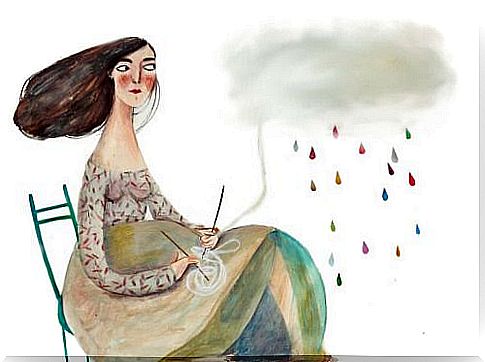
Postpartum depression
- Postpartum depression is a serious mood disorder.
- It may start unexpectedly throughout the first year, not necessarily right after delivery.
- It usually lasts between 10 and 15 months.
- The mother is unable to take care of herself and the baby, and feels completely defeated.
- It affects 10% of women.
- In some cases, it originates from emotional problems with the partner, unemployment or even a feeling of not feeling prepared for this new challenge that lies ahead.
- Postpartum depression is treated with pharmacological help and therapy.
The “Baby Blues”
- Appears right after delivery.
- It is a feeling of sadness and irritability that lasts, as we talked about earlier, just over 15 days.
- You don’t need pharmacological or psychological help. In this case, it helps a lot to talk to the partner, our parents or friends. Thus, this momentary cloud ends up dissipating on its own in a short time.
In conclusion, as you can see, feeling emotionally drained after the baby is born is normal.
In some cases, society itself with its classic idea that every woman who has just given birth is immensely happy and full of energy puts excessive pressure on the mother. What every mother needs is support from her surroundings, time and tranquility.
